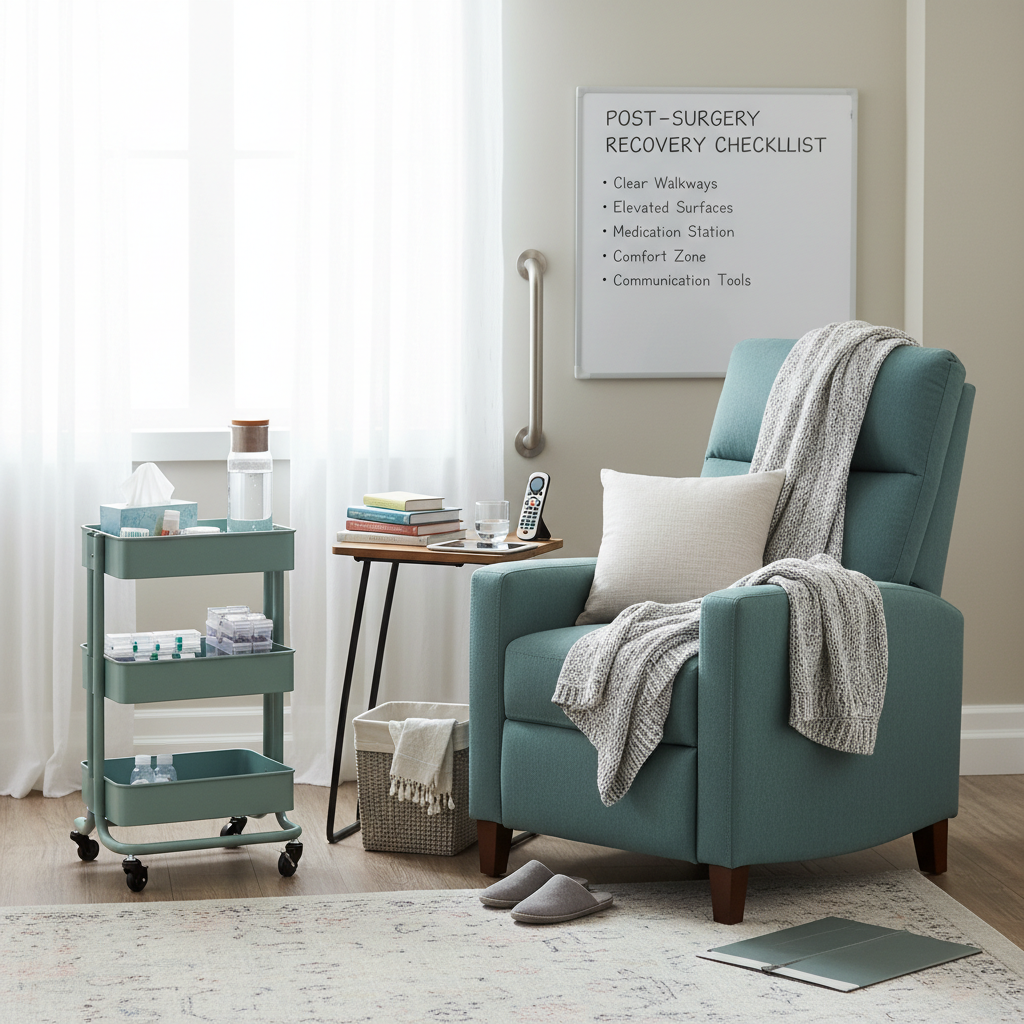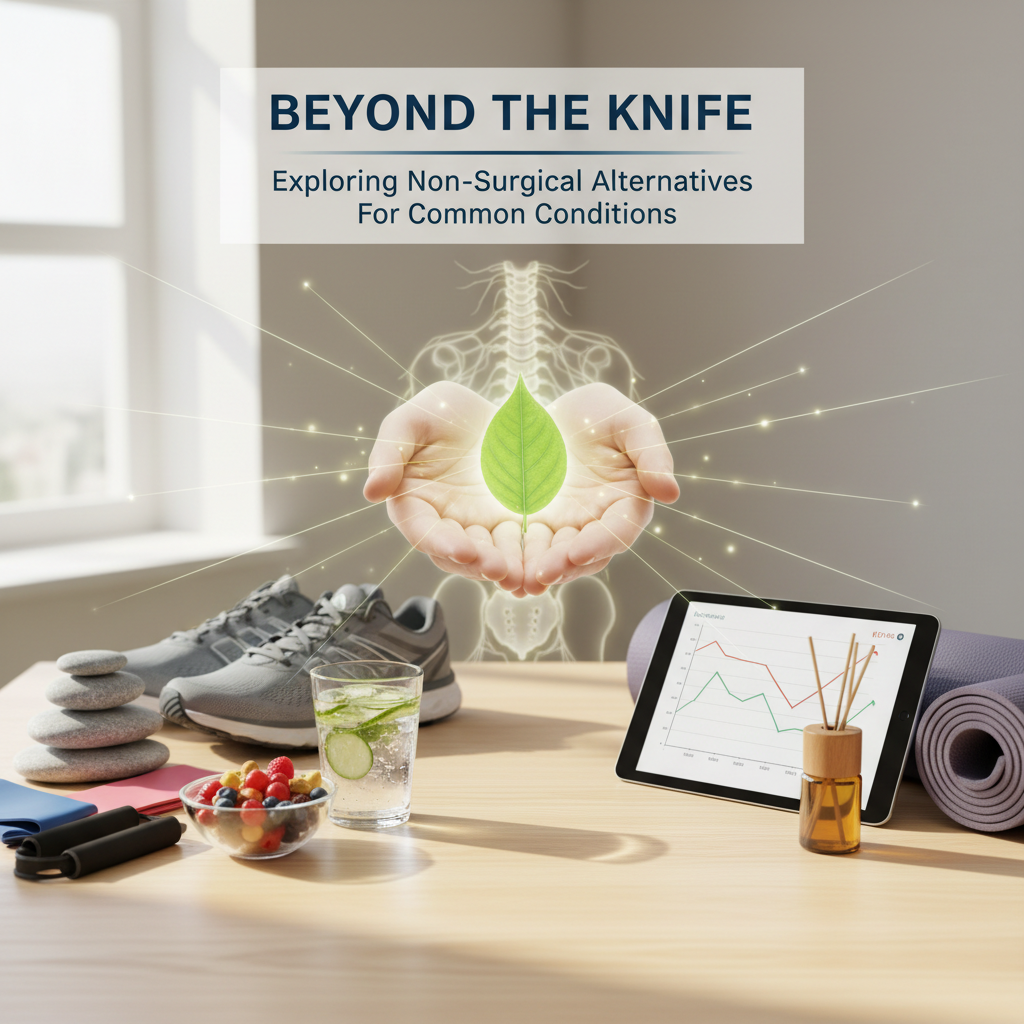Preparing for Surgery: A Comprehensive Checklist for a Smooth Experience
Preparing for Surgery: A Comprehensive Checklist for a Smooth Experience
This pre-surgery guide is for patients scheduled for an operation, caregivers who don’t want to miss a single detail, and busy professionals juggling work, family, and a procedure date they can’t move. You’re likely worried about medication timing, fasting rules, infections, paperwork, time off, and—real talk—waking up comfortable and complication-free. Our surgical team’s pre-op process is built to reduce stress and risk while keeping you informed at every step; Learn more about being informed at every step. If this feels overwhelming, our care coordinators can handle the medication review, reminders, and day-of logistics so you’re free to focus on healing. Learn more about choosing well and other vital aspects of your surgical journey.
So here’s the thing about a surgical preparation checklist: it’s your safety net. And your sanity saver. This pre-surgery guide lays out exactly what to do before surgery—no fluff—so you can hit the ground running and set yourself up for a smooth surgery recovery.
Top 12 Steps: Your Surgical Preparation Checklist
1. Confirm the surgical plan, risks, and timing
Clarity lowers stress and errors. Ask your surgeon to confirm the exact procedure name, laterality (right/left), anesthesia type, expected length, and whether it’s outpatient or inpatient. Get written pre-op instructions—paper or portal. Learn more about Confirm the surgical plan and other vital questions to ask your surgeon.
- Confirm arrival time and where to check in.
- Ask about expected pain plan and discharge criteria.
- Note surgeon and anesthesia contact numbers for urgent questions.
2. Dial in fasting and fluids (evidence-based)
Most patients can have clear liquids up to 2 hours before anesthesia and no solid food for at least 6 hours. Many teams still use “nothing after midnight,” but ASA guidelines support 2-hour clear fluids (water, apple juice, black coffee, oral rehydration drinks). Always follow your team’s final instructions—if they differ, theirs win.
- Heavy or fatty meals: stop 8 hours before. Light meal/snack: stop 6 hours before.
- Clear carbohydrate drink 2 hours pre-op is often allowed in ERAS protocols—ask if it’s right for you.
- Don’t chew gum, mints, or smoke the morning of surgery.
3. Manage medications and supplements safely
This is where cancellations happen... or don’t. Bring an updated med list (name, dose, timing). Then verify the plan with your surgeon, anesthesia, and prescribing clinicians.
- Blood thinners (warfarin, apixaban, rivaroxaban): typically held; timing varies by drug and kidney function.
- Aspirin/clopidogrel: often held 5–7 days unless cardiology says continue.
- Diabetes meds: hold SGLT2 inhibitors 3 days pre-op; insulin plans are individualized.
- ACE inhibitors/ARBs: many teams hold morning dose—confirm.
- Herbals/supplements (fish oil, ginkgo, garlic): stop 7 days before, unless directed otherwise.
Bring inhalers, nitroglycerin, or rescue meds day-of. And ask, “Which meds do I take the morning of surgery with a sip of water?” Get a written answer.
4. Do pre-op testing early (and right)
Labs, EKG, imaging, MRSA swabs—it’s not busywork. It catches problems before they catch you. Aim to complete testing 5–10 days prior so there’s time to correct anything off.
- CPAP users: bring your device; note settings in your chart.
- Report new symptoms (fever, cough) immediately—especially during flu/RSV season.
5. Shower with antiseptic as directed
Infection prevention starts at home. Many surgeons recommend chlorhexidine (CHG) showers the night before and morning of surgery.
- Use CHG from neck down; avoid face/genitals; rinse thoroughly.
- No lotions, deodorants, makeup, or perfumes after your morning shower.
- Don’t shave the operative area within 24 hours—micro-cuts increase risk.
6. Optimize health the week before
Small upgrades = better recovery. I’ve noticed patients who “prehab” bounce back faster.
- Walk 10–20 minutes twice daily, if safe.
- Protein target: about 1.2 g/kg/day—think eggs, Greek yogurt, lean meats, tofu.
- Stop smoking/vaping ideally 28 days before; even 72 hours helps oxygenation.
- No alcohol for 48 hours pre-op; hydrate deliberately (unless fluid-restricted).
- Sleep 7–8 hours; set a wind-down routine the last 3 nights.
7. Prepare your home for a smooth surgery recovery
Set yourself up so Day 1 feels doable. Now, look—future-you will thank you.
- Clear walkways, remove loose rugs, add nightlights, elevate cords.
- Stock easy meals, high-protein snacks, stool softeners, ice packs, gauze, sanitizer.
- Create a “recovery zone” with pillows, charger, water bottle, meds, remote, notepad.
- ArrangHelp for 48 hours—ride home, pets, kids, meals. Non-negotiable for sedation cases.
8. Plan time off and logistics
Ask your surgeon for realistic time-off guidance—be specific. “Desk work in 5 days” vs “manual labor in 21 days” are different realities.
- Secure a driver for discharge and a responsible adult to stay the first night if required.
- Sort FMLA, disability forms, and employer notes a week early (paper chases take time).
- Travel plans? Don’t book flights for at least 7–14 days unless cleared.
9. Pack a tight hospital/center bag
Think function, not fashion.
- Photo ID, insurance card, payment method.
- Medication list, allergy list, advance directive (if you have one).
- Glasses/hearing aids in a case, CPAP, inhalers.
- Loose front-zip hoodie, slip-on shoes, lip balm, phone/charger.
- Leave jewelry and valuables at home.
10. Know the day-of flow
Arrival, check-in, pre-op bay, consents, IV, anesthesia review—then wheels up. You’ll verify your name, procedure, and site multiple times on purpose. It’s safety.
- Use the restroom right before you go back.
- Tell anesthesia about loose teeth, reflux, nausea history, or motion sickness.
- Cold? Ask for a warm blanket; normothermia reduces infection risk.
11. Follow ERAS-style recovery steps
Enhanced Recovery After Surgery isn’t just buzz—it's a proven framework. Early oral fluids as permitted, early mobilization, multimodal pain control, and breathing exercises all reduce complications.
- Incentive spirometer: 10 slow breaths every waking hour.
- Short walks as soon as allowed—yes, even the day of surgery for many cases.
- Use scheduled acetaminophen/NSAIDs if approved; opioids only as needed.
12. Know red flags and follow-up
Before discharge, ask, “What should make me call you today vs go to the ER?” Write it down.
- Fever 100.4°F (38°C) or higher, worsening pain not controlled by meds, chest pain, shortness of breath.
- Wound issues: redness spreading, pus, foul smell, sudden swelling or tightness.
- Leg swelling or calf pain—possible clot risk—needs urgent guidance.
- Confirm your exact follow-up appointment date and dressing/ shower instructions.
What To Do Before Surgery: Quick Answers
What’s the best timeline to start preparing for an operation?
Start 21 days out if you can: stop risky supplements, increase protein, walk daily, and finalize logistics. At 7 days, complete labs, CHG showers, and medication adjustments. At 2 days, meal prep and home setup. The day before, confirm arrival time and fasting plan. The morning of, take approved meds with a sip of water and bring your bag.
Can I brush my teeth or take my morning meds?
Yes to brushing teeth—don’t swallow paste or large gulps of water. Take only the medications your anesthesia team approved (often blood pressure, thyroid, seizure meds). Skip unapproved pills, gummies, and supplements.
How do I calm pre-surgery anxiety?
Breathe box-style (4 in, 4 hold, 4 out, 4 hold) for 3 cycles, twice daily. Use a short, factual checklist to replace spirals with action. Bring one support person who’s calm. And ask anesthesia about anti-nausea and anxiety options—they’ve got tools.
What should I eat the day before surgery?
Focus on balanced, low-fat meals with protein (chicken, beans, tofu), cooked vegetables, and easy carbs (rice, pasta). Avoid heavy, greasy, or high-fiber feasts. Some ERAS pathways allow a clear carbohydrate drink the night before and 2 hours pre-op—ask if that’s appropriate for you.
Do I need someone to stay with me after outpatient surgery?
Yes after any sedation or general anesthesia: you’ll need a responsible adult for at least the first night. No driving, cooking over open flames, or signing contracts for 24 hours.
Pro Tips That Reduce Cancellations
From what I’ve seen, three things derail surgery more than anything else: taking a blood thinner by accident, eating within the fasting window, and getting sick right before. So—triple-check your med plan, set phone alarms for “last sip” and “no food,” and avoid sick contacts the week prior (mask if a family member has a cold). Winter? Be extra cautious during peak flu weeks.
FAQs
What is the most important part of a surgical preparation checklist?
Medication management. Confirm exactly which drugs to hold or take the morning of surgery, in writing. Fasting rules are next. Those two items prevent most day-of cancellations.
What should I bring to the hospital for a smooth surgery recovery?
ID, insurance, med/allergy lists, CPAP or inhalers, slip-on shoes, front-zip clothing, phone/charger, and a small notebook. Leave jewelry and valuables at home.
How soon will I walk and eat after surgery?
Many ERAS pathways have patients taking sips within hours and doing a short supervised walk the same day, if safe. Your team will tailor this based on procedure and anesthesia.
Which supplements should I stop before surgery?
Anything that increases bleeding or interacts with anesthesia: fish oil, ginkgo, garlic, ginseng, St. John’s wort, kava, valerian. A simple rule: if it’s not clearly approved, pause it 7 days before unless your clinician says continue.
What’s the fastest way to speed recovery?
Move early (short walks), breathe deeply (spirometer use), eat adequate protein, hydrate, and use multimodal pain control to reduce opioids. Small, consistent steps—no heroics.
If this checklist feels like a lot, our team can coordinate the pre-op testing, medication plan, and day-of reminders for you—so you focus on healing while we handle the details that keep surgery safe and smooth.

